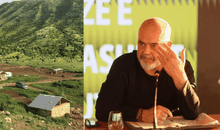
 Flash News
Flash News
Ceno Klosi with over 800 stolen votes, Balluku finds the reason is the tiredness of the counters
"Fast & Furious" in the former Block, police chase an Audi Q8, 4 cars collide
Car hits two tourists on a motorcycle in Fushe Arrëz, one of them dies
Serious accident in Thumanë, one dead, 3 injured
Durrës Court suspends the director of Pre-University Education from duty
The solitude of the "Xhafaj" commission: Boycott by justice and civil society

The government's plans to replicate a process seemingly similar to the justice reform through the so-called "anti-corruption commission" headed by MP Fatmir Xhafaj ran into crisis this week, when the justice institutions and a number of civil society organizations rejected each other. after another to send experts.
The Parliamentary Commission "For Deepening the Reforms for Good Governance, Rule of Law and Anticorruption for Albania 2030 in the European Union" started work unilaterally, after the Assembly approved in April only with the votes of the Socialist Party its establishment on the basis of a resolution of initiated by Prime Minister Edi Rama.
The initiative was met with distrust and was commented on as an attempt to "capture the institutions of justice", despite the fact that a number of embassies accredited in the country subsequently declared the participation of their experts in the commission.
The opposition has boycotted the commission since the beginning, while the rejection of the series of invitations by the justice institutions leaves the majority as the only party at the table.
The Constitutional Court, the Supreme Court, the Special Prosecutor's Office, the General Prosecutor's Office, the High Judicial Council and the High Inspector of Justice announced one after the other in the first days of October that they will not participate directly with experts in this commission . For various reasons, civil society organizations also refused to participate.
Through the letter sent to the Assembly on Wednesday, the Constitutional Court argued the rejection with the fact that participation in the law-making processes was "a conflict in the exercise of its function in checking the compliance of laws with the Constitution".
Even the Special Prosecutor's Office, SPAK, announced on Thursday that "the prosecutors did not consider it necessary to participate with experts in this commission...".
The Supreme Court reminded the Assembly of the "independence" and "impartiality" of the judicial power, considering their direct participation as members of a technical subgroup under the High Level Expert Group of Special Commission.
Even the General Prosecutor's Office announced on Friday that "it will not participate with experts as part of the committee's work subgroup", but added that it has designated "contact points" according to the respective fields of expertise.
The High Judicial Council also told BIRN on Friday that it would not send representatives as experts to the commission's working group, but would appoint a contact point that would contribute proposals and opinions.
Inspektoriati i Lartë i Drejtësisë po ashtu ka dërguar një përgjigje të ngjashme, ndërsa mbetet ende pa një vendimmarrje Këshilli i Lartë i Prokurorisë, pavarësisht se në gusht njoftoi se kishte pasur “dakordësim” për t’u përfaqësuar me dy prokurorë.
KLP i tha BIRN të premten se “nuk ka një vendimmarrje për këtë çështje” dhe se diskutimet ishin bërë në seanca informale të Këshillit.
Kryetari i Komisionit, Fatmir Xhafa, nguroi të jepte një qëndrim për refuzimin e institucioneve të drejtësisë, ndërkohë që prej dy muajsh komisioni nuk ka zhvilluar mbledhje. I kontaktuar nga BIRN, Xhafaj tha se do të mbante një qëndrim publik për ecurinë e komisionit javën që vjen.
Përveç institucioneve të drejtësisë, BIRN mësoi se komisioni “Xhafaj” është bojkotuar edhe nga disa organizata të shoqërisë civile, të cilat janë aktive në monitorimin e institucioneve të drejtësisë. Komiteti Shqiptar i Helsinkit, Instituti për Demokraci dhe Ndërmjetësim si dhe Instituti i Studimeve Politike nuk e kanë pranuar ftesën për të dërguar ekspertë pranë komisionit.
Drejtoresha ekzekutive e Komitetit Shqiptar të Helsinkit, Erida Skëndaj, i tha BIRN se i kanë komunikuar komisionit pamundësinë për t’u angazhuar në proces, “për shkak të mungesës së burimeve njerëzore’.
Edhe Instituti për Demokraci dhe Ndërmjetësim, IDM, sipas komunikimit zyrtar me Kuvendin, argumenton se i ofron komisionit vetëm ekspertizë nëpërmjet raporteve të kryera nga kjo organizatë dhe jo ekspertë që të punojnë në stafin e brendshëm të tij.
Afrim Krasniqi, drejtor ekzekutiv i Institutit për Studime Politike, një prej organizatave që ka refuzuar ftesën për të dërguar ekspertë, i tha BIRN se refuzimi i institucioneve të drejtësisë ishte i drejtë, pavarësisht se i vonuar në kohë.
“Komisioni i posaçëm është një strukturë politike e parlamentit, e përbërë nga politikanë me qëllime dhe ligjërime politike, kurse institucionet e pavarura dhe kushtetuese të drejtësisë janë institucione që do të duhet të jenë jashtë politikës,” tha Krasniqi për BIRN.
“Nëse do të kishin pranuar, do të kishin humbur konceptin e pavarësisë së tyre, do të kishin cënuar parimin kushtetues për të cilin janë ngritur, do të ishin në konflikt interesi dhe do të njësonin deridiku pushtetet,” shtoi ai.
Krasniqi ngre pikëpyetje për vonesën e dhënies së përgjigjeve, që sipas tij, tregon që ka pasur një debat të brendshëm.
“Nuk mundet që institucione që luftojnë korrupsionin të shkojnë të bëhen pjesë në një komision parlamentar, ku ka dhe individë që janë të akuzuar për korrupsion apo nën hetim, pavarësisht retorikës që përdorin,” tha më tej Krasniqi.
Përfaqësuesit e opozitës kritikojnë mungesën e transparencës, ndërsa theksojnë se komisioni ka punuar deri tani “në errësirë”, jo vetëm për publikun, por edhe për anëtarët e opozitës të zgjedhur “ex officio”.
Deputy Jorida Tabaku told BIRN that she has officially requested to know the list of experts who are working with this commission and has received a negative response, while adding that to her knowledge there are political persons in this group who do not guarantee the impartiality of the process.
"As far as I have seen names in the media, few experts are known in the field of integration, while there are many of them politically connected, starting from former deputy ministers and engaging people who have political connections with the ruling party," said Tobacco.
According to Tabak, the process, in addition to lacking transparency, is also a process "that leaves a path to prejudge the product they will produce in the future"./BIRN
Latest news





Lufta në Gaza/ Pse Netanyahu do vetëm një armëpushim 60-ditor, jo të përhershëm?
2025-07-02 21:56:08
US suspends some military aid to Ukraine
2025-07-02 21:40:55



Methadone shortage, users return to heroin: We steal to buy it
2025-07-02 20:57:35
Government enters oil market, Rama: New price for consumers
2025-07-02 20:43:30
WHO calls for 50% price hike for tobacco, alcohol and sugary drinks
2025-07-02 20:41:53







Israel agrees to 60-day ceasefire in Gaza, but many unanswered questions remain
2025-07-02 18:35:27
The weather in Germany is going "crazy", temperatures reach 40°C
2025-07-02 18:22:21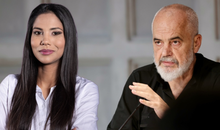

"Fast & Furious" in the former Block, police chase an Audi Q8, 4 cars collide
2025-07-02 17:59:25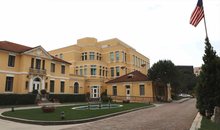
"Birth on a tourist visa? US Embassy warns Albanians: This is prohibited!"
2025-07-02 17:48:16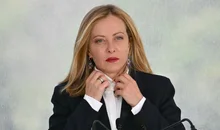


BIRN: Fier recount reveals vote trafficking within open political party lists
2025-07-02 16:57:19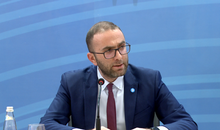

CEO and former director of 'Bankers Petroleum' arrested in Fier
2025-07-02 16:40:42
Car hits two tourists on a motorcycle in Fushe Arrëz, one of them dies
2025-07-02 16:33:23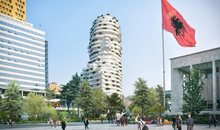



Fire at the Elbasan Incinerator Landfill, Prosecution Launches Investigations
2025-07-02 15:34:54
What you need to know if you travel to a country with active volcanoes
2025-07-02 15:33:03

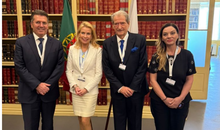

EU proposes 90% reduction in greenhouse gases by 2040
2025-07-02 14:50:23
Europe is burning from the heat / Italy and France are on maximum alert
2025-07-02 14:36:52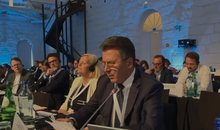
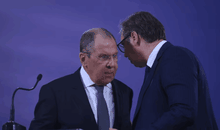
Moscow's contradictory statements: Is the friendship with Vučić breaking down?
2025-07-02 14:21:05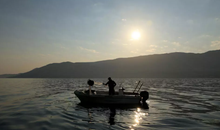
'I lost my battle': Sea warming is killing fishing in Albania
2025-07-02 14:08:35
Sekretet kimike që ndihmojnë në mbajtjen e mjaltit të freskët për kaq gjatë
2025-07-02 14:01:26
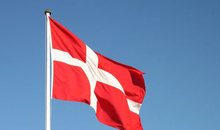
Denmark makes historic decision to make military service mandatory for women
2025-07-02 13:44:33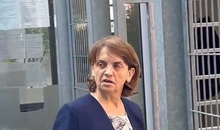
The appeal of the GJKKO leaves former judge Pajtime Fetahu in prison
2025-07-02 13:30:20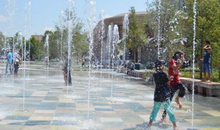
Productivity losses could reduce GDP by 1.3% as a result of extreme heat
2025-07-02 13:21:04
He abused his minor daughter, Zamir Meta is left in prison
2025-07-02 13:04:04

Waste burning in Elbasan, Alizoti: They are poisoning people and stealing money
2025-07-02 12:48:39
Civil disobedience continues in Serbia, dozens of people detained
2025-07-02 12:40:32
Rama's government was born under the sign of garbage and will end like this
2025-07-02 12:28:09
Water prices increase in the municipalities of the Elbasan region
2025-07-02 12:13:38
Civil disobedience continues in Serbia, what is happening in Belgrade?
2025-07-02 12:07:44
Serious accident in Thumanë, one dead, 3 injured
2025-07-02 11:54:42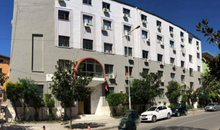
Durrës Court suspends the director of Pre-University Education from duty
2025-07-02 11:49:27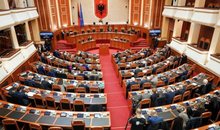
Plenary session on Thursday, what is expected to be discussed
2025-07-02 11:36:43
Europe is burning from heat waves/ What is the 'thermal dome' phenomenon?
2025-07-02 11:26:25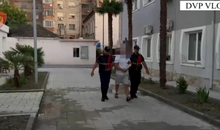
Wanted by Italy for murder, 45-year-old arrested in Vlora
2025-07-02 11:19:31
Fire situation, 28 fires reported in 24 hours, 2 still active
2025-07-02 11:13:20
"Buka" file, preliminary hearing for Ahmetaj postponed to July 17
2025-07-02 11:03:30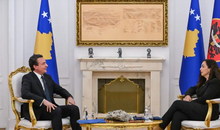
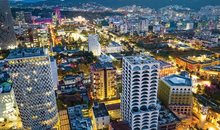

Baçi: Belinda Balluku and Ceno Klosi, the most dangerous "gangs" in Fier
2025-07-02 10:32:09
Zamir Meta, suspected of sexually abusing his daughter, arrives in court
2025-07-02 10:21:33

Trump: Israel has agreed to a 60-day ceasefire in Gaza
2025-07-02 10:01:55
Fire continues at Elbasan landfill
2025-07-02 09:51:13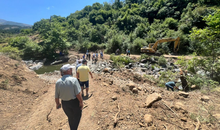

Dates to note during July, important events will occur
2025-07-02 09:31:45
The hearing for Jorgo Goro's claim is postponed
2025-07-02 09:24:19
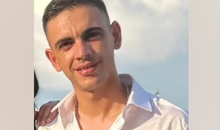


Foreign exchange, the rate at which foreign currencies are sold and bought
2025-07-02 08:42:31

52% of pensioners did not receive full pension in 2024
2025-07-02 08:27:18
Horoscope, what do the stars have in store for you today?
2025-07-02 08:13:36
Hot weather, Wednesday brings high temperatures
2025-07-02 07:59:16
Morning Post/ In 2 lines: What mattered yesterday in Albania
2025-07-02 07:46:15
Heatwave sweeps across Europe, Spain and England record hottest June ever
2025-07-01 22:57:41






Golem and Qerret without water at the peak of the tourist season
2025-07-01 21:09:32

Euractiv: Italy-Albania migrant deal faces biggest legal challenge yet
2025-07-01 20:53:38
BIRN: Brataj and Fevziu victims of a 'deepfake' on Facebook
2025-07-01 20:44:00

Vlora by-pass, work delays and cost increases
2025-07-01 20:24:29



Milan are expected to give up on the transfer of Granit Xhaka
2025-07-01 19:41:25

